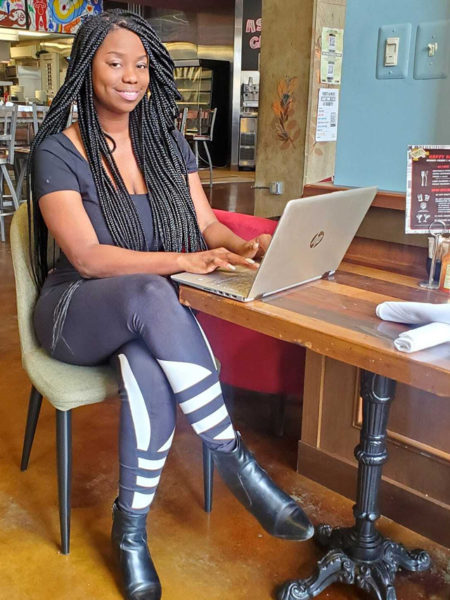In the wake of the Black Lives Matter movement, businesses and brands owned by Black founders saw a surge in financial support in June and July. But while individual companies reported upticks in profits, investments and web views, it can be challenging to quantify a “gold rush” to Black-owned brands overall.
That’s why Kezia Williams launched the My Black Receipt project. Using a simple online uploading process, Williams and her team encouraged consumers and investors to share proof that they’d spent money on one or more Black-owned companies. Over a 17-day period starting Juneteenth (the holiday celebrating the emancipation of enslaved African Americans) and ending the day before #BlackoutDay (which calls for a boycott on spending at non-Black businesses), people flooded MyBlackReceipt.com with submissions.
“Our project leverages the $1.3 trillion dollars that Black consumers spend annually and redirects those dollars to Black storefronts,” said Williams. But she noted that part of the motivation for launching My Black Receipt was anger at the police killing of George Floyd and the “discriminatory denial of Payment Protection Program loans to under-funded, at-risk, tax-paying Black entrepreneurs.” The pandemic has had a crushing impact on Black-owned businesses. Over 40% of Black owners say they might permanently shut down due to Covid-19.
While the Buy Black movement has long urged consumers to support businesses in the community, My Black Receipt is the first effort to quantify its success. The team set a goal of tracking $5 million in spending and kicked off a publicity campaign that included press, social media (using the hashtag #MyBlackReceipt) and a partnership with Yelp that allowed users to search for Black-owned businesses. The My Black Receipt website also offers a directory of Black-owned businesses that’s over 200 pages long.
Within 3 days of the campaign’s launch, consumers uploaded over half a million dollars in receipts. By the end of the campaign on July 6, consumers reported spending a total of $7.7 million.
Williams said the team received over 19,000 receipts and is close to finishing a meticulous verification process to ensure the claimed purchases are accurate and were made at Black-owned companies. Any mistakes will be removed from the tally. But she said she’s “confident that we will significantly exceed” the original $5 million goal.
A number of initiatives have sprung up this year to encourage the growth of Black-owned brands. Some are aimed at major retailers, like 15 Percent Pledge‘s partnerships with Sephora, West Elm and Rent the Runway, to increase Black-owned suppliers in stores. Others, like the ecommerce marketplace Nile and the mobile directory apps I Am Black Business and Black Nation, aim to provide one-stop shopping platforms that introduce consumers to new entrepreneurs and products.

But My Black Receipt isn’t just consumer-facing. A number of investors also uploaded receipts of venture funding they’d allotted to Black-owned startups during the window. Williams said those included Arlan Hamilton (CEO, Backstage Capital), Christopher Senegal (CEO, Buy the Block Houston), Phillip Acosta (CEO, GuRoo LLC), Gail Davis (CEO, McBing Properties LLC), Brandon Rule (CEO, Rule Enterprises), DeShuna Spencer (CEO, KweliTV) and Jewel Burks Solomon (managing partner, Collab Capital), among others.
Next up for MyBlackReceipt: partnering with Kroger to identify Black-owned brands in the company’s grocery chains.
“We know that it’s incredibly difficult to find Black-owned grocery stores in local neighborhoods nationwide,” Williams said. “However, that does not mean Black-owned brands can’t supply our meals and inform our culinary creations.”
My Black Receipt will also reactivate for consumer spending in August, which is National Black Business Month.
Williams said the goal is to harness interactive technology to ensure that support for the financial wellbeing of the Black community endures and isn’t just tied to a short period of protest.
“Black businesses serve a need, not a guilty conscience,” Williams said. “We believe that when consumers take pride in documenting their Black business patronization, it will create long term value for all participating.”
https://www.adweek.com/digital/how-my-black-receipt-tracked-millions-in-spending-to-black-owned-brands-in-just-17-days/

